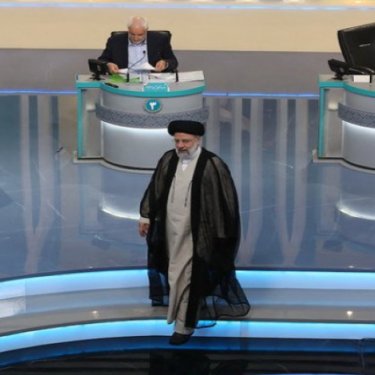Iran is stepping up pressure on journalists, including foreign journalists, in run-up to election

With official campaigning for next week’s presidential election now under way in Iran, Reporters Without Borders (RSF) again condemns the regime’s censorship of the media, its use of threats against journalists and the absence of independent reporting.
The fact that the candidates for Iran’s 13th presidential election on 18 June were selected by the Islamic Republic’s Guardian Council, whose members are directly chosen and appointed by Supreme Leader Ali Khamenei, means there is little chance of a clean and transparent electoral process.
But the regime is not just organising a sham election. It has also imposed censorship on all the media, it is preventing them from covering the election freely, and it is using summonses and interrogations to threaten journalists and citizen-journalists who post on social media.
Since 16 May, the deadline for candidate registration, RSF has logged no fewer than 42 cases of journalists receiving summonses from the prosecutor’s office or threats from intelligence ministry officials.
The range of prohibitions that have been issued to journalists include making “negative or critical comments about the election” and “criticising Ebrahim Raisi,” a cleric who is the current head of the judiciary and a close Khamenei ally, and who also happens to be one of the presidential candidates. The message of these bans could not be clearer.
“Although Iran is a party to the International Covenant on Civil and Political Rights, the Islamic Republic has never respected article 25 requiring ‘genuine’ elections with ‘universal and equal suffrage’ and held by ‘secret ballot, guaranteeing the free expression of the will of the electors,’ or article 19 guaranteeing freedom of expression and information, a precondition for voters to be able to make a choice,” said Reza Moini, the head of RSF’s Iran/Afghanistan desk.
“In view of the threats against journalists, censorship of newspapers, filtering of news websites and social media, and crackdown on critical opinion, it is impossible to talk of a democratic electoral process.”
Although news agencies with a presence in Iran cannot tackle sensitive subjects and have to accept the regime’s arbitrary red lines, international media coverage of the election constitutes a major challenge for the Islamic Republic.
For years, a joint committee consisting of representatives of the intelligence ministry, the ministry of culture and Islamic guidance and the foreign ministry has decided which foreign journalists will be given a visa. According to the information obtained by RSF, several journalists who have written articles critical of the regime in the past have been refused visas to cover this election.
Foreign journalists who have received a visa have been “invited” to stay at the same Tehran hotel where they are not only closely watched by the intelligence agencies but are also assigned an escort by the ministry of culture and Islamic guidance. At the same time, Iranian journalists working for the Persian-language sections of international media or for Iranian exile TV channels and websites based abroad have also been subjected to threats by Iran’s intelligence agencies or justice system.
Iran is ranked 174rd out of 180 countries in RSF's 2021 World Press Freedom Index.



